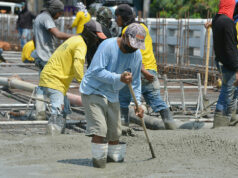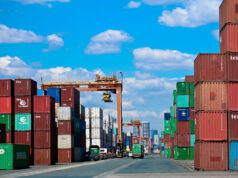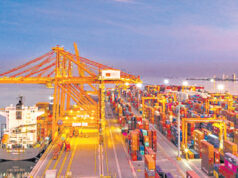DTI clarifies only commercial-scale barter subject to tax
ONLY BARTER pursued on a commercial scale is subject to tax and must be registered with the government, while trades at the individual level may proceed without penalty, Trade Secretary Ramon M. Lopez said.
Mr. Lopez said in a radio interview Wednesday that barter through whatever channels is subject to registration when such activity becomes a regular business, and noted that businesses with annual gross sales of over P3 million are subject to value-added tax.
Mr. Lopez clarified remarks he made Tuesday that barter is illegal in most parts of the country. He said the only exceptions are in southern islands where the activity is traditional.
Only the ports of Siasi, Jolo, and Tawi-Tawi may conduct cross-border or international barter under Executive Order No. 64 issued by President Rodrigo R. Duterte in 2018.
Mr. Lopez said that the country does not have specific prohibitions on domestic barter.
“In effect, local trade — online or (offline) — di siya pinagbabawal pero subject sa tax (is not banned, but it’s subject to tax),” he said.
He added that the government may look into barter transactions by individuals if the activity is sustained over time.
He said in a mobile message to reporters that the Trade department will look into setting rules for online barter “if still needed.”
Metasearch website iPrice Group in a study conducted in April and May found that total search volumes for “barter” in the Philippines jumped 407%, with searches keywords like “barter trade” rising 203%.
Most Filipinos engaging in barter were outside Metro Manila, with 72% of 85 Facebook barter groups based outside the capital region.
“Our hypothesis is that the supply chain in areas outside NCR (National Capital Region) might have been affected due to the lockdown. Being an archipelago, it is a challenge to transport goods from one place to another,” iPrice said in a statement.
“Filipinos living in Metro Manila might have less need to resort to barter than in other major cities and provinces.”
It said that Filipinos are seeking to barter for food, groceries, baby products, and bicycles. — Jenina P. Ibañez



